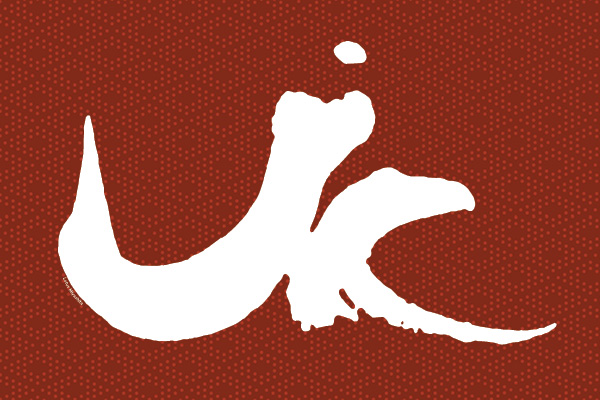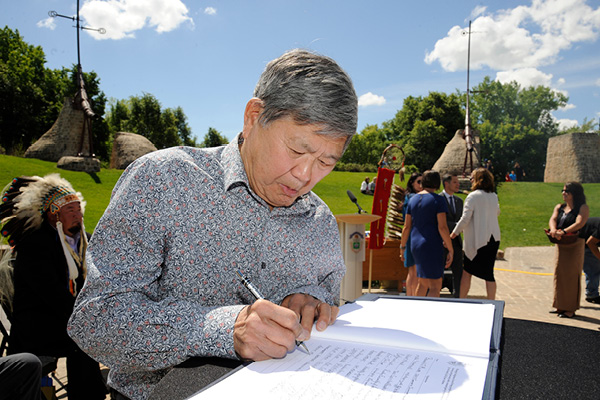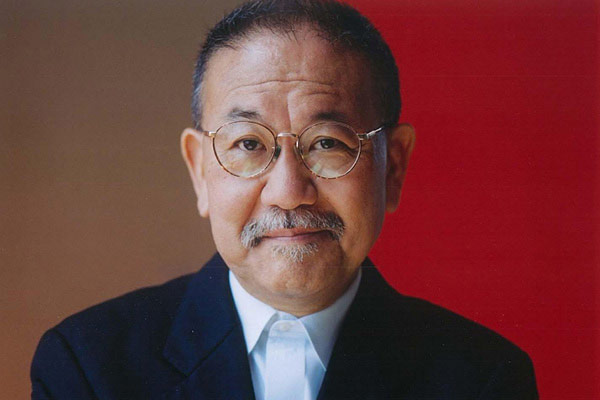by David Fujino
My talent agent emailed me in mid-October. I had an audition for *Kazoku, a student short film at York University, and I should deal directly with the students. I emailed back my interest in auditioning for the role of the older Takeshi and was eventually awarded the role. (They probably needed an older JC actor, desperately, is how I rather cynically thought about the audition at the time … but that’s me …)
Truthfully, I liked the script — for once, the past and the present were brought together in a plausible and intelligent manner; there were no exotic Japanese ghost tales to play out; no characters speaking in dubious ‘Japanese’-accented English; and no acting like frenetic villagers was required (compare the incomparable villagers in classic Japanese films like The Seven Samurai, or Yojimbo. Hard to top, anyway.)
The Kazoku script was all about the JC experience! Down through the decades, through the stresses of the Internment and the loss of the family’s home and personal possessions, Takeshi yearns for the return of a prized katana that was handed down in his family. In the film’s final scene, Takeshi and the younger Stephen resolve their differences in a spirit of true understanding, atonement, and reconciliation. For a JC actor, this script was a small godsend.
Since I wanted to get some sense of who the screenwriter/director was, I admit I ‘Googled’ Michael before auditioning at York. It turns out that Michael Maddeaux, the scriptwriter, and director, is a personable Toronto-based sansei and York University man of diverse interests. He’s in Film Production, with broad practical experience in cinematography, film documentaries, electrical and crew work, editing, screenwriting and directing, as well as being President of the York Yo Yo club. (If you Google Michael maddeaux, you’ll find a short Youtube video which features him demonstrating his considerable yo yo skills. Rather nice.)
On set, Michael was open to making changes to the script and didn’t treat it like some kind of Bible; and on the topic of actors saying their lines, he said he didn’t look for letter-perfect memorized dialogue, as long as the actors were in character and conveyed his essential points. I immediately felt supported (and not judged), for this director clearly respected what actors can bring to a film.
It was a short step to asking Michael if he wanted to be interviewed over email. I’m glad he said ‘Yes’.
Where? and When? were you born?
I was born in Toronto, Ontario, on March 14, 1994. I spent the first year of my life in Toronto but my family eventually moved north to Newmarket. There I attended a French Immersion elementary school, and then continued with French in the immersion program at Newmarket High School. In 2012, I graduated and in the fall I began my studies in Film Production at York University.
What inspired you to write the screenplay for Kazoku?
In 2011, I travelled with my mother to northern California to visit family during March Break. While we stayed with my mother’s Aunt and Uncle, I was shown a short document that Auntie had typed up describing our family’s life before, during, and after the Second World War. This was the first time I had heard/read about my family’s involvement with the Japanese Canadian Internment and it inspired me to write something about it.
Michael, how did you find out about the Internment?
It’s hard to remember, but if my family ever talked about the Internment I can barely remember it, if at all. My first solid recollection about learning of the Internment was in my Grade 10 History class.
Are you acquainted with social organizations like the Japanese Canadian Cultural Centre, and the Christian religious centres and churches like the Buddhist temple, the United and Anglican churches? … how about the Gospel Church, 7th Day Adventist, and Seiichi-No-Ie?
I’m not a member of either but I do visit the Japanese Canadian Cultural Centre at least once a year for the annual Matsuri event (when I was younger I used to dance Bon Odori with my mother, but now we just go to watch), and I also attend the Toronto Buddhist Church twice a year for monthly memorial services (for my grandparents).
Have you met your Japanese and French grandparents?
I did meet my Japanese Canadian grandparents and actually saw them a lot as a child. I remember going to see them in Toronto almost every Friday after school with my family. Sadly, these memories are a little foggy because they both passed away in the early 2000s when I was younger. On my Father’s side I am actually half German, half English. I did get to meet my grandmother and got to know her quite well until she passed away a few years ago. Unfortunately I did not get to meet my grandfather since he passed before I was born.
Who is Takeshi in your film?
Takeshi is the main character of Kazoku. At the beginning of the film we see him as an adult who has experienced the Internment and has had to deal with the repercussions of it all his life. Although he has become wiser and more patient, he still has some ill feelings towards how his family was wronged. As the film continues, we follow his memory back to the day where he and his family are taken away from their home to an Internment Camp.
Can you provide a brief plot synopsis of Kazoku?
“After experiencing the internment of the Japanese Canadians as a young boy in the 1940s, Takeshi Tanaka is now confronted by an old enemy. He is presented with a long lost family heirloom and finally must decide if he is finally capable of forgiving the past.”
What were your challenges in writing the character of Takeishi?
My biggest challenge in writing this character was that in the film he is depicted in two separate time periods, at two very different points in his life. As a younger version, I knew I wanted him to be a little more hotheaded, angry and confused. When we see him again in present day, I needed to find a balance between subdued anger for what happened to the Japanese Canadians, and an understanding of what happened. He needed to be a much more mature version of the character while still being the same person.
Is being of Japanese ancestry an asset or a liability?
I believe it is mainly an asset, but in terms of making this film, I would be naïve to say that it is not also a liability. I say this because I feel that being of half Japanese ancestry comes some expectation from the Japanese Canadian community for me to get this story right. Even though this is the story of one fictional family, I feel there is definitely some representation of the community as a whole in this film. Therefore I want to make sure that this film is as accurate as I can make it. That being said, I will admit I made some minor compromises because I felt they needed to be made in favour of telling a good story. At the end of the day, my goal is to make an amazing and emotional film.
I also felt the pressure to have an all-Japanese Canadian family cast since this is specifically a story about Japanese Canadian history. I want everyone to know that A) as a young filmmaker, there are not many professional actors who are running to come and work with me. So I was blessed with the chance to work with the actors that are featured in this film. B) I love my actors and will stand by them until the end. They did an amazing job and I thank them for their hard work on Kazoku.
In the end I guess it isn’t a liability, it actually made me work with more attention to detail, which works out for the better.
With all this in mind, I want to say that being half Japanese is still definitely an asset. I have an emotional attachment and passion for this story that I think will help drive this film. I have devoted myself completely to this story and project and that is why it will be so strong.
If you weren’t writing a screenplay, or directing a film, or doing crew work on a film shoot, you would …
Hard to say, film has become such a huge part of my life. Though if I had to say, I would be either spending time with my friends (from University or High School), or working on my yo-yoing. Other yo-yoers are continuously getting better and I can’t keep up!
What are your current fixations?
Anyone who knows me well also knows that I’m a huge nerd. Aside from yo-yoing, I also love anything to do with superheroes and science fiction. In the future I would love to direct a superhero or science fiction film.
In the summer/fall I like to play soccer, practice archery in the fall, and ski in the winter.
What advice should you have taken, but did not?
For the film? I wouldn’t say I didn’t take this advice, but I definitely wish I had followed it more: Prepare earlier. Prep for a film is always going to be rushed, you can never have enough time even if you prepare as early as you can. I guess if I could go back in time, I would have started prep for this film as soon as my last one was done. Then I’d have a head start!
Do your parents wish you were doing something else instead?
Nope. At least if they do they have never told me! They have always been supportive of my filmmaking, which definitely helps me continue to do what I do. I love them a lot and appreciate their support.
*Kazoku means family in Japanese.
February 19, 2016



